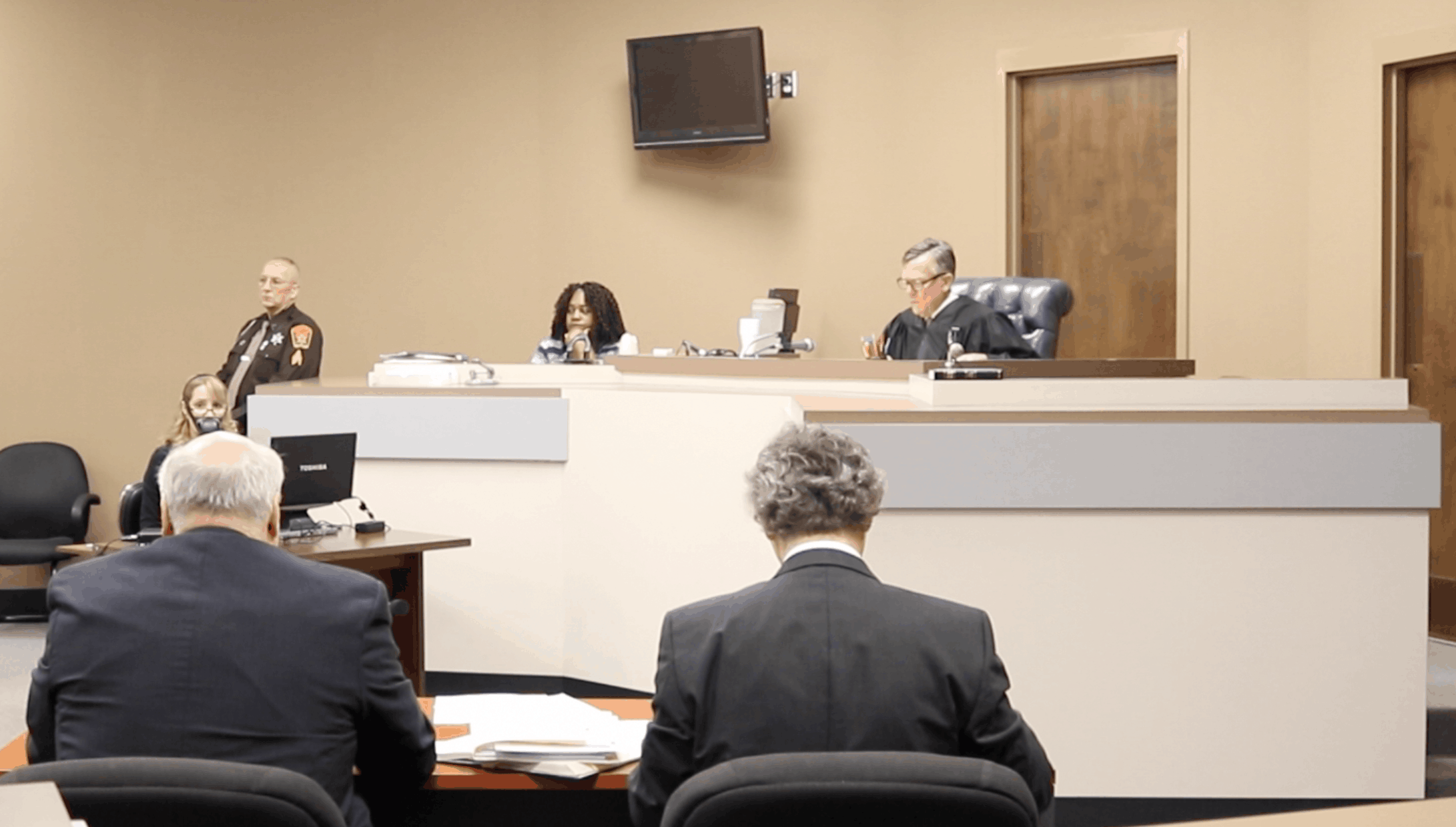Yesterday at the Halifax County Superior Court, Judge Russell Duke heard a motion from lawyers representing the Halifax County Board of Commissioners to dismiss a lawsuit contending the Board is not meeting its constitutional obligation to provide a sound, basic education to every child in Halifax County.
No decision was made regarding the standing of the dismissal with Judge Duke saying he would take both parties’ petitions and motions under advisement.
The defendant’s motion for dismissal can be read here. The plaintiff’s opposition can be read here.
As previously reported by EdNC, the lawsuit, brought by the Coalition for Education and Economic Security (CEES), the Halifax County branch of the NAACP, and three parents and guardians of children in Halifax County Public Schools, accuses the Board of Commissioners of impeding students’ constitutional right to a sound, basic education by continuing to fund three separate school systems in the county.
According to the lawsuit, the plaintiffs contend that the Board of Commissioners is “constitutionally obligated to structure a public education system that meets the mandates established by the North Carolina Supreme Court in Leandro v. State (‘Leandro I’) and Hoke County v. State (‘Leandro II’).” But despite the mandate from the Court, the Board continues to “maintain and fund an inefficient three-district system that divides its children along racial lines into ‘good’ and ‘bad’ school districts,” the lawsuit states
Representing the Board of Commissioners, Halifax County Attorney Glynn Rollins argued for dismissal contending that the Board had neither “… the constitutional authority nor the responsibility of the constitution to provide a system of education, maintain a system of education, or otherwise structure a system of education, or to provide the opportunity for a sound, basic education. That is, under the constitution, the responsibility of the state.”
Later, Rollins revisited the point, arguing that a local board of county commissioners could not make changes to a school system created by the state’s General Assembly.
“In fact, the only responsibility that the General Assembly can assign to a Board of County Commissioners, is the responsibility for the financial support — that is the local financial support — of public schools.”
Citing state statutes, Rollins argued that it is the constitutional responsibility of local school districts, not county boards of commissioners, to ensure that students are receiving a sound, basic education.
Mark Dorosin, managing attorney of the UNC School of Law’s Center for Civil Rights and representative for the plaintiffs in the suit, argued that the responsibility of county governments to allocate financial funding to local school districts for things like school construction, maintenance, and learning supplies did impact a student’s ability to receive a sound, basic education, for which local government is constitutionally responsible.
“What the county would like you to believe is that funding and resource allocation has no bearing on the provision or the ability to provide a sound, basic education,” said Dorosin.
“Well, are you asking for more funds?” Judge Duke interjected.
“We’re not asking for more funds,” said Dorosin. “What we’re asking is for the county … we’re questioning whether the way the county has allocated resources is fulfilling its obligation to provide a sound, basic education.”
“The allocation…under three administrative units?” asked Judge Duke, referring to Halifax’s three separate school districts.
“That’s right. Under the current structure as we have alleged in our complaint,” said Dorosin. “That is the inefficient use of resources, and that use is operating to the detriment of students in all three districts.”
CEES chairperson Rebecca Copeland said in an interview after the hearing that the County Commissioners were trying to avoid their obligation to the children of Halifax County.
“What I heard today was our County Commissioners taking the position that they are not responsible for making fiscally-sound decisions on how our local tax dollars are applied here in Halifax County. And thats not true,” Copeland said. “It is our responsibility to make sure that those dollars are allocated in a prudent fashion that serves to the best overall education across the county. And they are denying that responsibility today.”



